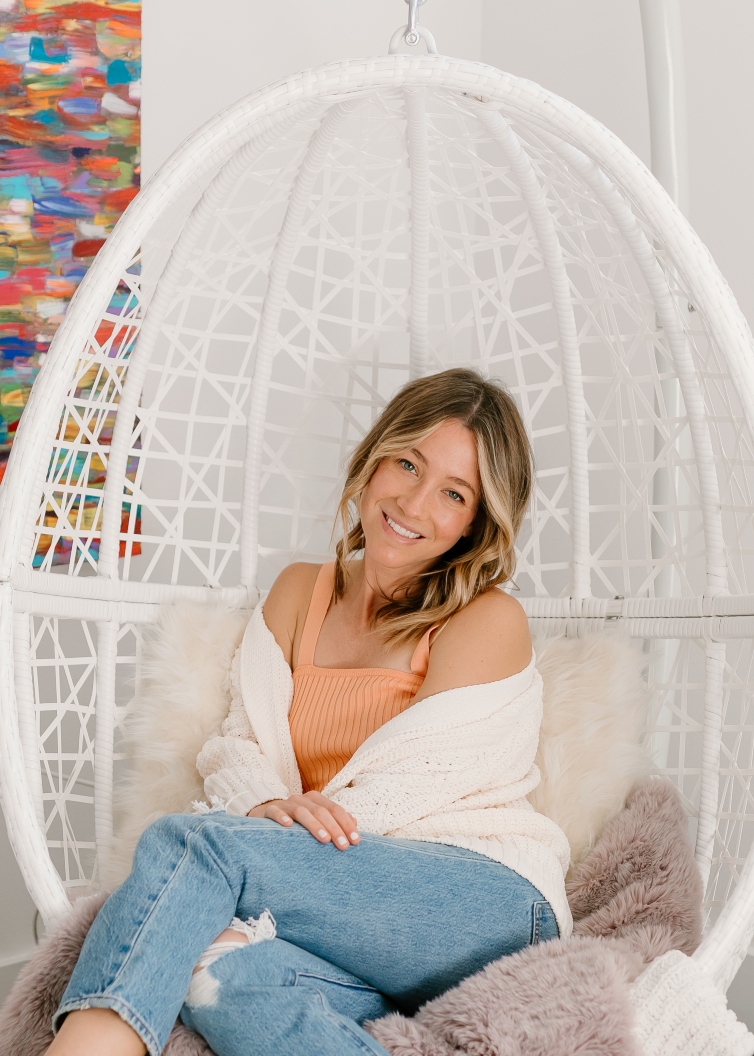Therapy is revitalized through the MindBar app, which offers accessible and affordable mental health for anyone, anywhere.
By Laurel Sanchez, Photo by Mack Eveland
Therapy can be quite the daunting concept to those who have never gone. Accessibility and affordability are often not words associated with mental health. This is precisely what Hailey O’Neill is looking to change with the founding of MindBar, a mobile app that is self-proclaimed as a “masterclass of mental health,” with a price tag as low as a Netflix subscription.
O’Neill found herself in a very similar position as many first-time therapygoers: in a state of curiosity about it but with no knowledge of how to dive into the world of mental health. In 2015, after a paycheck hit her bank account, she decided to take the jump. “I’ve already invested in my physical health and nutrition, and I’m curious about therapy,” O’Neill recalls. “Even though I don’t feel like I need to go, I am curious about it.” And so her journey started.
She began furiously googling therapy and met with over 10 therapists, who she ultimately didn’t feel she clicked with, while simultaneously paying $150 an hour for each session. “I was lucky enough to be able to access and afford that,” she says. After many tries and even more failures, she finally found a therapist who was the right fit for her: her eventual MindBar co-founder, Barbara Nadalini-Priesnitz. “My life just completely changed for the better,” she says. “I got out of a bad relationship, a bad job and started to recognize patterns I wasn’t aware of and began to improve my relationships. I started telling all my friends how much I loved therapy and how much it was doing for me. Then they all started going to my therapist, and we became this little community that started by us all going to Barbara.” It was at this moment that the idea of MindBar was created. If businesses such as Orange Theory and SoulCycle offered group personal training at a lower cost, why couldn’t the same apply to mental health? “I wanted to create a SoulCycle for mental health.”

This was how “MindBar 1.0” was created. O’Neill and Nadalini-Priesnitz started doing in-person classes and workshops on different topics. Then COVID-19 happened, forcing them to alter the structure of their class format. “The more we did online, the more we got people emailing us asking for the recordings,” says O’Neill. “So we got on this different journey from in-person to online live [classes].” While these online sessions were a great success, they were limited to the Austin area. The classes were intimate, with only around five to six people being able to join, and members were subject to the therapist’s schedule. They took this minor setback and treated it as the learning curve for the launch of the new MindBar, which offers “all of the areas of mental health under a singular platform.”
The launch of MindBar eliminates the financial and mental stress of therapy, and there is a program suited for people in every stage of life. “There are therapists who go deep, focusing on your upbringing, childhood trauma and help you realize patterns,” O’Neill says. “But there are also counselors who help you work with what you are dealing with right now, as well as coaches who focus on what you want right now and how to help get you to that goal.”
The feature that MindBar has been tirelessly working on for the past eight months is the masterclasses for mental health, where they take what you would learn after many sessions with a therapist and compile it into a singular class. “People can now learn these tools at their own pace and to what fits their schedule and go deeper if they would like to.” Each MindBar therapist has instructed at least one masterclass for the app. The masterclasses are made up of modules and workbooks that you can do in real life, so you can keep the skills flowing and going, at your pace, on your schedule. “You can do one a day or one a week,” O’Neill says, “but it is designed to be like you are going to a one-on-one session with them.”
MindBar offers versatility and affordability while simultaneously making mental health approachable to people worldwide. “My ideal dream is I want therapy to feel cool; I want it to feel like something you are proud of going to and you talk about all the time. My ideal future is to get everybody to go to therapy proactively, to be able to afford it, to be encouraged to realize it is cool, to realize how great it is. At MindBar, we have written the content to help guide people.”

